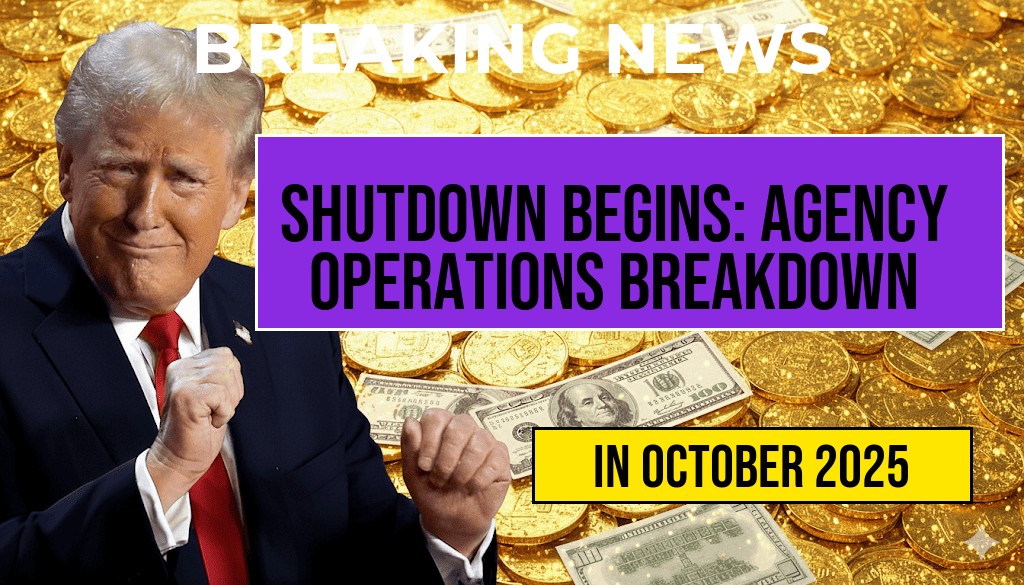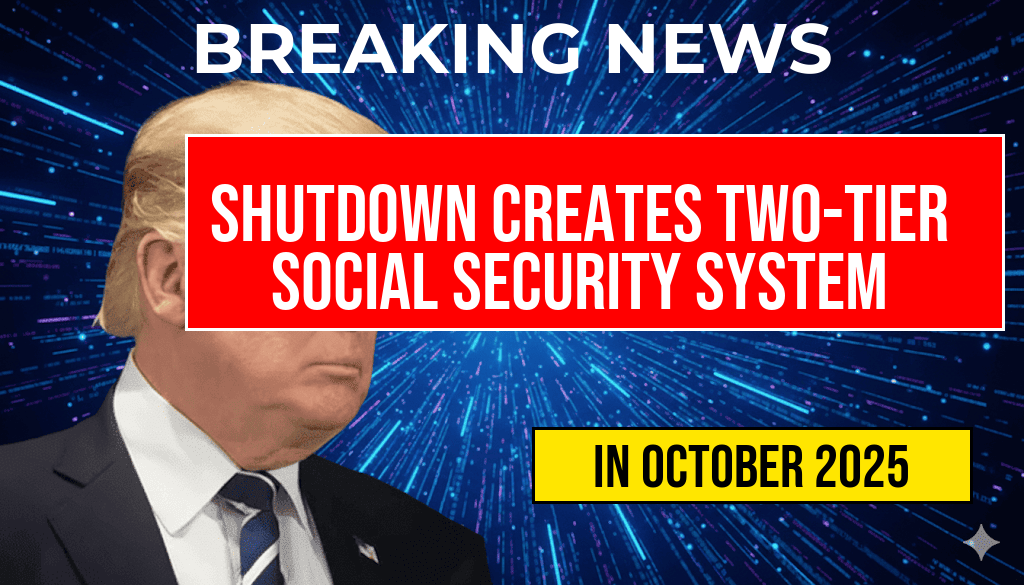The federal government has officially entered a shutdown following the failure of Congress to pass a funding package before the deadline. As a result, numerous government agencies are operating under limited capacity, with essential services continuing while many others pause or cease operations entirely. This shutdown impacts millions of Americans who rely on programs like Social Security, the Internal Revenue Service (IRS), and the Department of Defense. The following breakdown provides a detailed overview of which agencies remain functional and which have suspended non-essential activities amid the impasse in federal funding negotiations.
Agency-by-Agency Breakdown of Operations During the Shutdown
Federal Agencies Remaining Operational
During a government shutdown, agencies designated as providing essential services typically continue their operations. These include agencies responsible for national security, public safety, and health services, among others. Here are some of the key agencies still functioning:
- Social Security Administration (SSA): Continues to process and deliver Social Security benefits, including retirement, disability, and survivor payments. Customer service centers are operating remotely, though some in-person services are limited.
- Department of Defense (DoD): Maintains active military operations, defense-related activities, and national security functions. Civilian employees deemed essential remain on duty.
- Transportation Security Administration (TSA): Continues screening airline passengers and baggage at airports nationwide to ensure transportation security.
- Federal Emergency Management Agency (FEMA): Continues disaster response operations and preparedness activities.
- U.S. Customs and Border Protection (CBP): Maintains border security, customs screening, and immigration enforcement.
Agencies Restricting or Halting Operations
Most non-essential federal agencies have scaled back or halted their activities. Employees considered non-essential are furloughed, and routine functions are suspended until funding is restored. The most affected agencies include:
| Agency | Status | Notes |
|---|---|---|
| Internal Revenue Service (IRS) | Limited operations | Processing of tax refunds continues, but audits and customer service are reduced. |
| Environmental Protection Agency (EPA) | Furloughed | Most activities halted; only emergency response remains active. |
| Department of Education | Furloughed | Most functions suspended, including student aid processing. |
| National Park Service | Closed | Most parks and visitor centers are shuttered, impacting tourism. |
| Centers for Disease Control and Prevention (CDC) | Limited | Core functions continue, but research and outreach programs are paused. |
Impacts on Public Services and Recipients
The shutdown’s ripple effects extend across vital public services. Social Security recipients generally see no interruption in their benefits, but some administrative processes may slow down due to staffing shortages. For many Americans, the delay in processing certain requests or inquiries could cause inconvenience. Conversely, agencies like the IRS are halting routine audits and enforcement actions, which could influence tax compliance efforts during this period.
Federal contractors and employees classified as non-essential face furloughs, leading to economic uncertainty for thousands. Meanwhile, services related to national security and public safety – such as TSA screenings and military operations – remain largely unaffected, underscoring the prioritization of core functions during a shutdown.
Political and Economic Repercussions
The shutdown underscores ongoing divisions within Congress over federal spending priorities. Economists warn that prolonged shutdowns can slow economic growth, disrupt markets, and damage the government’s credibility. The Congressional Budget Office (CBO) estimates that each week of shutdown results in billions of dollars in lost productivity and economic activity.
Furthermore, the shutdown complicates negotiations on future budgets, with lawmakers under increased pressure to reach an agreement swiftly. The federal debt ceiling debate continues to loom as another source of potential financial instability, adding to the urgency of resolving funding disagreements.
Resources for Americans Affected by the Shutdown
Government websites and official channels remain the primary sources for updates and assistance. For example, Social Security provides guidance on benefit payments, while the CDC offers health-related updates. Citizens are advised to stay informed through credible sources and to plan for possible delays in services.
As negotiations continue, the outlook for a swift resolution remains uncertain. The shutdown’s duration and scope will significantly influence the recovery of affected services and the broader economic landscape, as policymakers work to bridge partisan divides and restore full government funding.
Frequently Asked Questions
What agencies are affected by the government shutdown?
The government shutdown impacts various agencies, including the Social Security Administration, IRS, Defense Department, and Transportation Security Administration (TSA). Some agencies continue operating essential functions, while others face closures or limited services.
Which government services will continue during the shutdown?
Essential services such as Social Security payments, military operations, and air travel security through the TSA are expected to continue. These functions are classified as essential and are typically funded to maintain safety and critical operations.
What happens to IRS operations during the shutdown?
The IRS will experience significant disruptions. Most tax processing and customer service functions will be suspended, affecting taxpayers who need assistance or are due refunds. Only critical functions related to tax enforcement and compliance may continue.
Will Social Security benefits be affected by the shutdown?
No, Social Security benefits will continue to be distributed as usual because the Social Security Administration is considered an essential agency. Beneficiaries will still receive payments and related services.
How long might the government shutdown last, and what are the implications?
The duration of the government shutdown depends on Congressional action to pass funding bills. Prolonged shutdowns can lead to disruptions in services, delays in processing, and economic impacts. Agencies will operate under limited capacity until funding is restored.






